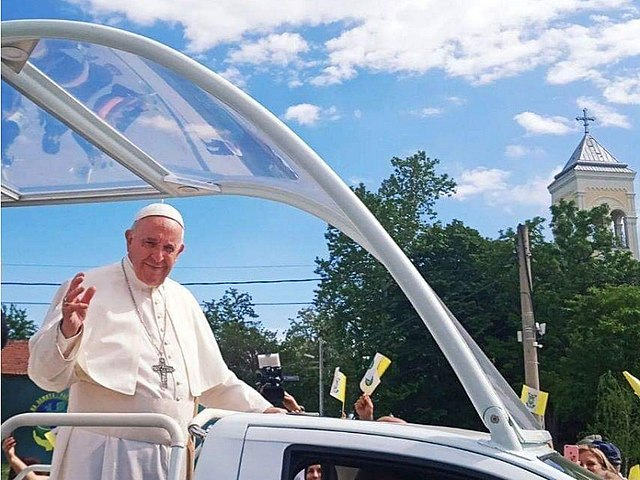The world was met with profound sorrow with the announcement of Pope Francis’ death on Monday, marking the end of an era in the Catholic Church. At 88 years old, Francis leaves behind a rich legacy as a reformer who tirelessly advocated for marginalized communities, including gay individuals and the impoverished. Revered by many, his influence extended far beyond Vatican walls, igniting conversations around inclusivity and reform within the Church. In his passing, tributes have flooded in, celebrating his bold initiatives and compassionate demeanor, as pontiff and a leader. As we reflect on Pope Francis’ obituary, the discussions surrounding his impactful reforms and enduring legacy will continue to resonate within Catholic Church news and beyond.
The recent loss of Pope Francis echoes deeply within the global community, reflecting on his transformative impact on Christianity and society at large. Known as Jorge Mario Bergoglio prior to his papacy, Francis’ journey from Argentina to the Vatican was one marked by dedication and profound changes. His ministry emphasized the importance of compassion and reform, reshaping attitudes towards numerous societal issues highlighted throughout his time. The Vatican now prepares to honor his life as plans are set in motion to organize his funeral, where many will gather to honor his monumental contributions. As discussions unfold about his successors and the future of the Catholic Church, the potency of his legacy will undoubtedly remain a focal point for generations to come.
The Passing of Pope Francis: A Shock to the World
The announcement of Pope Francis’s death sent ripples across nations, reverberating through the hearts of millions who admired the transformative leader of the Catholic Church. Cardinal Kevin Farrell stated poignantly that at 7:35 a.m. on Monday, “the Bishop of Rome, Francis, returned to the house of the Father,” marking the end of an era defined by reform, compassion, and outreach to the marginalized. The pope’s death at age 88 has not only left a void in the spiritual leadership of over a billion Catholics but has also prompted a profound reflection on his legacy and reforms during his papacy, such as his advocacy for the poor and marginalized communities.
As news of Pope Francis’s passing reached the faithful gathered for Easter celebrations, a somber atmosphere settled over St. Peter’s Square. Pilgrims explaining their experience shared: “Even if I won’t be able to enter the Basilica, I came here with my husband to say a prayer.” This embodies the deep emotional connection that many have with the pope, solidifying his prominence as a beloved figure within the Catholic community. Notably, the Vatican’s plans for his final resting place will be a focal point where mourners can pay their respects, indicating that his impact will be felt long after his physical presence is gone.
Celebrating the Legacy of Pope Francis
Pope Francis’s legacy is a tapestry woven with threads of compassion, social justice, and a focus on inclusivity. His groundbreaking attempts to reform the Church, especially in a time plagued by scandals, showcased his commitment to addressing the grievances of the faithful. While some conservative factions resisted his outreach to LGBTQ+ individuals and his advocacy for divorced and remarried Catholics, he continually emphasized the importance of love and mercy over mere dogma. His death prompts reflections on these enduring legacies—did he do enough to reform the Church while keeping its core tenets intact?
In Argentina, President Javier Milei remarked on the significance of having the first Argentine pope in history, indicating that Pope Francis’s contributions will reverberate through generations. His legacy includes not only ecclesiastical reforms but also his bold statements on global issues like climate change and the rights of refugees. As tributes pour in from leaders worldwide, such as French President Emmanuel Macron and King Charles, it is evident that the influence of Pope Francis transcended religious boundaries, inspiring individuals from different backgrounds to reflect on the values he espoused.
Pope Francis’s Reforms and Challenges Faced
During his papacy, Pope Francis initiated pivotal reforms aimed at confronting entrenched issues within the Church, particularly the clerical sexual abuse crisis and the Vatican’s financial management. His 2019 directive mandated that all instances of abuse be reported internally, a controversial move that sparked debate about the accountability of bishops. While some hailed him for taking these steps, critics argued that his measures often fell short of addressing the full spectrum of victim needs. This dichotomy underscores the struggle he faced — reforming deeply rooted traditions while also healing the wounds inflicted by past mismanagement.
In addition to the abuse crisis, Pope Francis also confronted a church grappling with modernization and increasing secularism. His willingness to bless same-sex couples marked a historic shift in Vatican policy, though it polarized segments of the Catholic community. Critics noted that while he promoted a message of inclusivity, he remained traditional on issues such as clerical celibacy and abortion. This balancing act defines his approach to reforms, where he attempted to bridge the gap between modern society and long-standing church principles.
Catholic Church News Following Pope Francis’s Death
In the wake of Pope Francis’s death, the Catholic Church is now faced with the immense task of mourning and navigating the future without one of its most dynamic leaders. The Vatican has already announced plans to honor the Pope, with his body displayed in St. Peter’s Basilica for public mourning. This will enable the faithful an opportunity to say farewell, underscoring the deep connection he had with millions of Catholics who followed his teachings. This event represents not just a time to grieve but also a moment to reflect on the direction of the Church moving forward.
Additionally, discussions regarding the selection of a new pope will commence in the upcoming conclave, an event steeped in both tradition and anticipation. Many within the global Catholic community are already speculating on the qualities and reforms the next pope will embody. The forthcoming decisions are critical, especially considering the expansive challenges the Church continues to face, including globalization, secularism, and internal clerical divides. Hence, the coming months will be crucial in shaping the future trajectory of the Catholic Church.
Global Reactions to Pope Francis’s Passing
Reactions to the death of Pope Francis have poured in from heads of state and religious leaders around the world, highlighting his profound impact beyond the Vatican. Figures such as Italian Prime Minister Giorgia Meloni have expressed deep sorrow, describing the pope as a great man and pastor. Similarly, Vice President JD Vance shared memories of their meeting just days before his passing, illustrating the personal connections he forged even with those outside the Church. As leaders express their condolences, they also highlight the moral authority Francis held on pressing global issues.
Moreover, the global discourse surrounding his passing reflects on his unique ability to engage with people across cultural and political lines. French President Emmanuel Macron’s tribute emphasized Francis’s commitment to joy and hope for the poorest, showcasing how his teachings resonated at a societal level, aiming for a more equitable world. These tributes not only honor the man but also challenge successors to carry forward his legacy of compassion and activism in a world rife with division.
Pope Francis’s Final Messages and Health Struggles
Pope Francis’s decline in health has been a concern among followers in recent years, as he faced various ailments, including significant hospitalization due to pneumonia. His frail condition often required him to use a wheelchair, highlighting a human facet of a leader who has been characterized by his vigor and passion. Just days before his passing, he offered blessings on Easter, seemingly embodying resilience despite his struggles, demonstrating the depth of his commitment to his faith and his flock.
The final messages and addresses delivered by Pope Francis reveal a man dedicated to imparting hope and love to the faithful, even as he faced waning health. His Easter message, filled with joy and gratefulness for the support of his followers, resonated deeply in light of his passing. As news of his death settled in, many reflected on how his final words encapsulated his lifelong mission—to promote kindness, understanding, and social justice within a world that often seems divided and tumultuous.
The Future of the Catholic Church After Francis
As the Catholic Church stands at a crossroads with the death of Pope Francis, the future will likely require navigating through challenges associated with modernization and reforms initiated during his papacy. His successor will face the daunting task of building upon the foundation Francis established while possibly redefining the Church’s objectives in light of continuing global issues. This transition period will be crucial, as the next pope may need to balance the expectations of both progressive and traditional factions within the Church.
With Francis’s death, many speculate on potential candidates who might lead the Catholic Church in a direction that either continues or significantly shifts from his path. The Church’s leadership will increasingly need to focus on transparency, accountability, and engagement with contemporary social issues. As future conclaves prepare to elect a new pope, the legacy of Pope Francis will linger—encouraging a more inclusive, empathetic, and reformative approach to Catholicism while striving to maintain its core beliefs.
Reflection on Pope Francis’s Historical Significance
Reflecting on the historical significance of Pope Francis’s papacy reveals a leader who redefined what it meant to be a pope in the modern world. As the first Jesuit and the first non-European pope in over a thousand years, his rise to this historically important position signifies a shift toward inclusivity and global representation within the Church. His tenure was marked not only by the challenges faced by traditional institutions but also by the unique opportunities he recognized to engage with a diverse global population and to address urgent moral issues.
In his lifetime, Pope Francis worked tirelessly to bring joy, hope, and change to those within and outside the Church. His emphasis on addressing poverty, climate change, and social justice has been revolutionary, influencing discussions within Christian doctrine and beyond. As we reflect on his contributions, it becomes clear that his legacy will continue to inspire individuals to question, reform, and reinforce the values of their faith, making him a pivotal figure in both religious and social spheres for generations to come.
Mourning and Tribute: Pope Francis’s Public Memorial Services
The public mourning of Pope Francis will coincide with several memorial services planned at St. Peter’s Basilica, providing the faithful an opportunity to pay their respects while celebrating the life of a beloved leader. These events, steeped in tradition, will include prayers, blessings, and reflections on his life and teachings. Such ceremonies will not only honor his personal legacy but will also draw attention to the compassionate values he embodied throughout his papacy.
As millions around the world unite in remembrance, memorial events are likely to be characterized by universal themes of love, hope, and solidarity—values that Pope Francis fervently upheld. Tributes may span far beyond religious lines, inviting reflection on the human ideals he strived to promote. These observances mark a collective moment of remembering a leader who sought to elevate the dignity of individuals worldwide, affirming his enduring impact on both the Church and society.
Frequently Asked Questions
What are the key details of Pope Francis’ death and how has the Vatican responded?
Pope Francis passed away at the age of 88, with the Vatican announcing his death early Monday morning. Cardinal Kevin Farrell stated that he returned to the ‘house of the Father’ at 7:35 AM. Plans were shared for his body to be placed in a coffin and displayed in St. Peter’s Basilica for mourners to pay their respects.
What will happen to Pope Francis’ body following his death?
After Pope Francis’ death, his body will be placed in a coffin at the Chapel of the Domus Sanctae Marthae and later transferred to St. Peter’s Basilica for public mourning. He is expected to be buried at the Basilica of St. Mary Major, as per his wishes.
How is the Catholic Church and the world reacting to Pope Francis’ death?
In response to Pope Francis’ death, tributes have poured in from global leaders, reflecting on his impactful legacy. Notable figures, including Italian Prime Minister Giorgia Meloni and France’s President Emmanuel Macron, expressed their sorrow and recognized his efforts to promote hope and joy for the marginalized.
What legacy did Pope Francis leave behind and how will it be remembered?
Pope Francis leaves a profound legacy marked by his progressive reforms, emphasis on inclusivity, and advocacy for the poor and marginalized. His willingness to engage with controversial topics like same-sex blessings and clerical abuse reforms is seen as a significant shift in the Catholic Church’s direction.
How will Pope Francis’ death impact the ongoing reforms within the Catholic Church?
Pope Francis’ death leaves a void in the progressive reforms he championed, particularly regarding inclusivity and modernizing church practices. His successor will likely face challenges in continuing his legacy, especially in addressing contemporary social issues and balancing traditionalist concerns within the Catholic Church.
What were some significant reforms initiated by Pope Francis during his papacy?
During his papacy, Pope Francis initiated several significant reforms, including allowing priests to bless same-sex couples and implementing comprehensive changes to church laws regarding clerical sexual abuse. He also called for global action on climate change and encouraged increased roles for women in church governance.
How did Pope Francis address the clerical abuse crisis in the Catholic Church?
Pope Francis addressed the clerical abuse crisis through the most extensive revision of church laws in four decades, urging bishops to take decisive actions against accusations of abuse. However, he faced criticism for not doing enough to protect victims and implement sufficient reforms.
What health issues did Pope Francis face leading up to his death?
Leading up to his death, Pope Francis faced several health challenges, including ongoing issues with diverticulitis and bronchitis, which made him reliant on a wheelchair and affected his public appearances. He struggled with pneumonia in the months before his passing.
What are the next steps for the Catholic Church after the death of Pope Francis?
Following Pope Francis’ death, the Catholic Church will enter a period of mourning while preparations are made for a conclave to elect his successor. The cardinals, under strict secrecy, will gather to choose a new pope to lead the church.
How did Pope Francis’ background influence his papacy and reforms?
Pope Francis, born Jorge Mario Bergoglio to Italian emigrants in Argentina, brought a unique perspective shaped by his experiences with poverty and social justice. His background influenced his reformative approach, emphasizing love and support for the marginalized and challenging traditional norms within the church.
| Key Points | Details |
|---|---|
| Pope Francis’ Death | Pope Francis has passed away at the age of 88. He died on Easter Monday, and the Vatican announced his death early in the morning. |
| Last Public Appearance | The Pope appeared on Easter Sunday to bless worshippers. |
| Public Mourning | Pilgrims gathered at St. Peter’s Square and many went to the basilica to pay their respects. |
| Plans for Funeral | His body will be placed in a coffin in the Chapel of the Domus Sanctae Marthae and later moved to St. Peter’s Basilica for public viewing. |
| World Leaders’ Tributes | Leaders from various countries expressed their condolences, praising Francis’ influence and humanitarian work. |
| Health Issues | Francis faced numerous health problems in his later years, requiring assistance due to frailty. |
| Legacy | Francis was known for challenging traditional church norms, advocating for LGBTQ+ rights, and addressing poverty, while also facing criticism for some of his reforms. |
Summary
Pope Francis’ death marks a significant moment in the history of the Catholic Church. As the first Jesuit and non-European pope, he led more than a billion Catholics with a focus on reform and inclusivity, touching hearts worldwide through his advocacy for the marginalized. His legacy will be remembered for his courage in addressing controversial issues and his unwavering commitment to the values of love and compassion.



